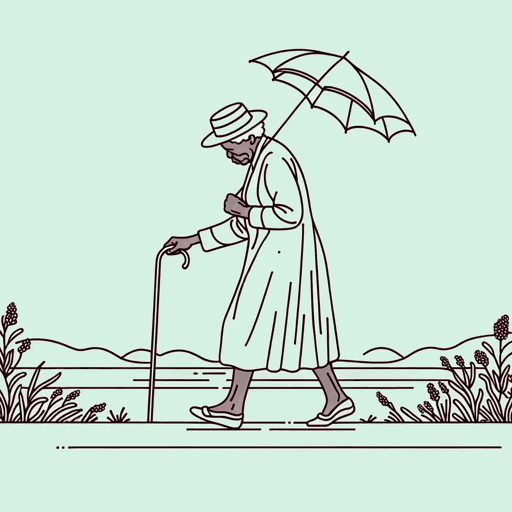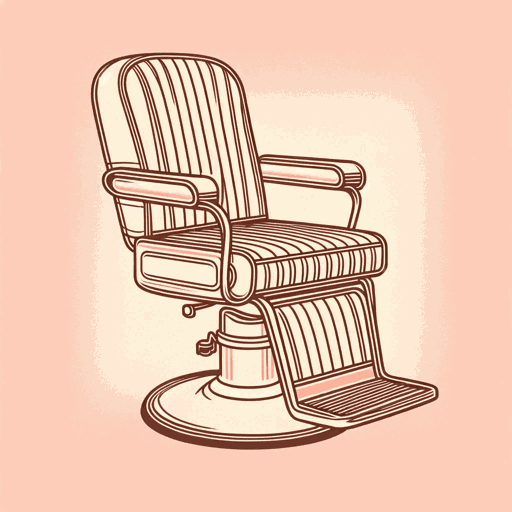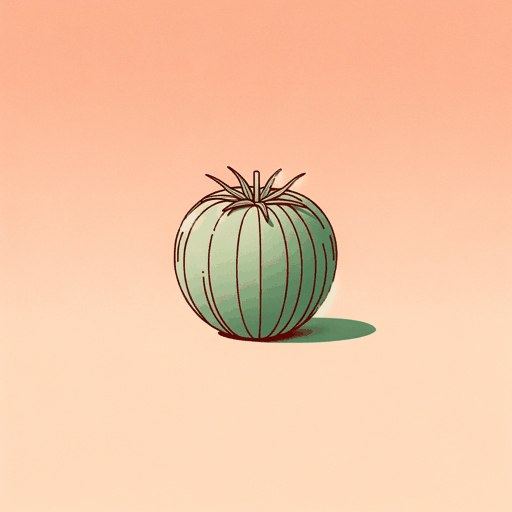30 pages • 1 hour read
Eudora WeltyDeath of a Traveling Salesman
Fiction | Short Story | AdultA modern alternative to SparkNotes and CliffsNotes, SuperSummary offers high-quality Study Guides with detailed chapter summaries and analysis of major themes, characters, and more.
Summary and Study Guide
Summary: “Death of a Traveling Salesman”
“Death of a Traveling Salesman” is Eudora Welty’s first published short story, which, upon its release in 1936, put her on the literary map and introduced her readers to her uniquely Southern and Modernist voice. As part of the Southern Renaissance movement, Welty’s writing spanned from the 1930s to the 1970s and included critiques of industrialism. Her 1972 novel The Optimist’s Daughter won the Pulitzer Prize, and she was awarded the National Medal for Literature (1979) and the Presidential Medal of Freedom (1980).
This guide cites the 2019 edition of The Collected Stories of Eudora Welty, published by Mariner Books at Houghton Mifflin Harcourt with an introduction by Ann Patchett.
The story begins with the protagonist, R. J. Bowman, driving down a country road in Mississippi. He has just been released from a hotel doctor’s care after a long bout of the flu, and though he is still weak and feverish, he is steadfast in his desire to get back to work as a traveling shoe salesman. This has been his profession for the last 14 years; he perpetually drifts from hotel to hotel, his solitary life a blur of small rooms and lonely furniture. During his long “siege” of influenza, he was plagued by a very high temperature and fever dreams. Even earlier this afternoon, he experienced unbidden memories of his grandmother—memories that were simultaneously comforting and bewildering.
Bowman is now in search of a town called Beulah with the hope of making some sales, but he suspects he is lost and seems to be driving on some obscure “cow trail.” As he occasionally sticks his head out of the window to try to see up the dusty road, the sun beats on his head, almost like a person pushing down on him. The oppressive heat makes him feel even more frustrated and powerless. He sometimes sees people working out in the fields, but he feels hesitant to ask them for directions; they are strangers and too far away.
As Bowman drives through a mass of dead oak leaves, he realizes he is on a thinning, unkept trail not meant for cars, and he suddenly finds himself on the edge of a ravine—a steep drop-off and a definite dead-end. He pulls the brake with all his might, but to no avail, and the car keeps rolling toward the edge and begins to tip. Knowing what’s about to happen, he gets out and helplessly watches his car tip into the ravine. However, the car doesn’t fall the whole distance; it’s caught by thick grapevines along the side of the ravine wall, “like a grotesque child in a dark cradle” (109).
Bowman is now feverish, confused, and on foot. He spots a house up on a hill and walks toward it to seek help. The house is a shotgun house (a common style for Southern homes built in the earlier 20th century), and a woman stands out in front, holding a lamp that she’s half-way through cleaning. Bowman, who believes himself capable of discerning a woman’s age on sight, thinks she looks to be about 50 years old with a large stature. He tries to speak to her but at first is overcome by the fitful beating of his heart. Though he has been ill the whole day, his heart now intensely palpitates:
Like a rocket set off, [his heart] began to leap and expand into uneven patterns of beats which showered into his brain, and he could not think. […] It began to pound profoundly, then waiting irresponsibly, hitting in some sort of inward mockery first at his ribs, then against his eyes, then under his shoulder blades, and against the roof of his mouth when he tried to say, ‘Good afternoon, madam.’ But he could not hear his heart—it was as quiet as ashes falling. This was rather comforting; still, it was shocking to Bowman to feel his heart beating at all (110).
When Bowman does finally mutter his request for help after a few failed attempts, the woman is gruff but helpful, telling him that “Sonny ain’t here, but he’ll be here” (110)—Bowman assumes this means she has a son who will help when he arrives. After entering the woman’s home to rest, his heart still hammering, Bowman sits on a yellow chair while the woman sits with her knees curled to her chest on the hearth of the unlit fireplace. As he peers around at the pine boards of the house, he feels calmer, and his heartbeat seems less jarring. From where he sits, can see into another room with an iron bed just visible; the bedcover is “a red-and-yellow pieced quilt that looked like a map or a picture, a little like his grandmother’s girlhood painting of Rome burning” (111).
Both he and the woman are quiet, but the silence makes Bowman restless, so he starts a sales pitch about a line of affordable women’s shoes. The woman responds only that Sonny will soon return and help retrieve Bowman’s car. When Bowman asks where Sonny is, she says he’s at the farm of someone named Redmond. This information—even just the name Redmond—makes Bowman inexplicably anxious. He’s glad he will never have to meet Redmond or other strangers with strange farms. Despite his inward agitation, however, Bowman finds himself compulsively asking yet another question to which he doesn’t even want an answer: whether the woman and Sonny live alone. Yes, she says, they do. She falls silent again. After having spent a month in isolated convalescence from the flu, Bowman feels overwhelmed by the interpersonal dynamic with this woman, and something about her quiet thoughtfulness flusters him. He wonders why she is paying attention to him instead of distracting herself with other chores. As he fretfully puzzles over what must be going on in her mind, he feels his pulse in his palms.
After some time, Sonny finally arrives—a self-assured, large, and capable man who looks to be about 30. Bowman falls silent for several minutes, seemingly unable to speak or to ask Sonny for the help he needs. When the woman relays the request on Bowman’s behalf, Sonny agrees to pull the car out of the ravine and sets out to do so without much fanfare. Bowman’s heart pounds again.
While Sonny and his mule work on pulling the car back up, Bowman sits quietly in the dark house with the woman. As he observes her silent figure, an intense but unidentifiable emotion surfaces:
This time, when his heart leapt, something—his soul—seemed to leap too, like a little colt invited out of a pen. He stared at the woman while the frantic nimbleness of his feelings made his head sway. He could not move; there was nothing he could do […] But he wanted to leap up, to say to her, I have been sick and I found out then, only then, how lonely I am. Is it too late? My heart puts up a struggle inside me, and you may have heard it, protesting against emptiness… It should be full, he would rush on to tell her, thinking of his heart now as a deep lake, it should be holding love like other hearts (113).
Despite his fervor, Bowman is mute and frozen in place, and he quickly feels ashamed of how close he’s just come to saying something “strange.” After what feels to Bowman like ages, Sonny returns and tells him that his car is safely back on the road. It’s now nighttime, and upon the thought of actually leaving the house, Bowman suddenly feels heartsick, both vulnerable and aggrieved: “These people cherished something here that he could not see, they withheld some ancient promise of food and warmth and light. Between them they had a conspiracy” (114). He asks if he can stay the night because, he says, he’s still weak and unsure if he can walk back to his car. Also, he’s lost. Sonny pats him down to make sure that he’s not really someone from the state who has come to check that they’re abiding by prohibition laws. Once satisfied that Bowman has no gun, Sonny agrees to let him stay. Then, the woman tells Sonny that he should go “borry some fire” (115), which means walking to their neighbor’s farm with a big stick, lighting it on fire, and then using it to make a fire in their home. Sonny heads out to do that, returning shortly with a torch. He lights the fire, brightening and warming the house, and after he and Bowman head out to retrieve a bottle of liquor from its buried place in the backyard, the woman cooks dinner.
The three spend the evening in the house, drinking, eating, and resting in front of the bright fire. With light in the house, Bowman can now see that the woman is not middle-aged or large at all, but young and pregnant. He suddenly realizes that the woman is Sonny’s wife and that the two are a married couple who are expecting a child. Upon this realization, Bowman feels as though someone has just played a joke on him, yet he also feels incapable of indignance. The couple’s hospitality has left him very emotional in ways he doesn’t understand, and though he feels ill, he doesn’t want to ask for further accommodations; he declares that he’ll sleep on the floor in front of the fire.
The couple goes to sleep in their bed, and in a half-slumber, Bowman repeatedly mutters one of his sales-pitch lines about shoe discounts. As the night’s silence stretches on, however, he is overcome with emotion. He thinks of the couple’s unborn child and wishes it were his. Deciding suddenly that “[h]e must get back to where he had been before” (118), he weakly arises and dons his coat, which now feels overheavy. He sees the lamp that the woman never finished cleaning; emptying his billfold, he puts all the money under the lamp’s base, intending to pay for his stay. He shivers, and as he heads to his car, his heart beats harder and harder:
On the slope he began to run, he could not help it [… H]is heart began to give off tremendous explosions like a rifle, bang bang bang.
He sank in fright onto the road, his bags falling about him. He felt as if all this had happened before. He covered his heart with both hands to keep anyone from hearing the noise it made.
But nobody heard it (118).
Related Titles
By Eudora Welty

A Visit of Charity
Eudora Welty

A Worn Path
Eudora Welty

Delta Wedding
Eudora Welty

Losing Battles
Eudora Welty

One Writer's Beginnings
Eudora Welty

Petrified Man
Eudora Welty

The Optimist's Daughter
Eudora Welty

The Ponder Heart
Eudora Welty

The Robber Bridegroom
Eudora Welty

Why I Live at the P.O.
Eudora Welty

